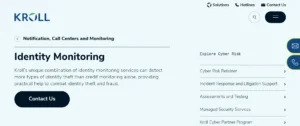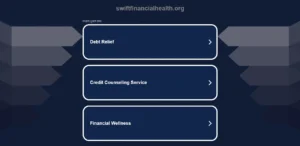Willis Towers Watson Recruitment Scam – Are you aware of the rising threat of phishing emails?
Beware of the Willis Towers Watson Recruitment Scam, targeting unsuspecting job seekers. Learn how these scammers operate and discover red flags to spot a phishing email.
Take control of your online security and protect yourself from falling victim to recruitment scams. Follow these tips to stay one step ahead and avoid becoming their next target.
Table of Contents
The Rise of Phishing Emails: Understanding the Threat
If you want to protect yourself from cyber threats, you must understand the rise of phishing emails.
Phishing emails have become increasingly common in recent years, posing a significant threat to individuals and organizations alike.
These deceptive emails are designed to trick recipients into divulging sensitive information or downloading malicious attachments. They often appear to come from reputable sources, such as banks or well-known companies, making it difficult to distinguish them from legitimate emails.
Cybercriminals use various tactics to manipulate recipients, such as creating a sense of urgency or offering enticing rewards. Once the recipient falls victim to the scam and provides their personal information, it can be used for identity theft, financial fraud, or other malicious activities.
Therefore, it’s crucial to stay vigilant and educate yourself about the characteristics and strategies used in phishing emails to avoid becoming a victim.
Uncovering the Willis Towers Watson Recruitment Scam
You should be aware that the Willis Towers Watson Recruitment Scam is a deceptive scheme that aims to trick job seekers into providing personal information and falling victim to identity theft.
This scam operates by sending phishing emails that appear to be from legitimate recruiters or HR personnel at Willis Towers Watson, a well-known global advisory, broking, and solutions company. The emails typically contain enticing job offers and request recipients to provide sensitive information, such as social security numbers, bank account details, and even copies of passports or driver’s licenses.
These scammers are skilled at creating convincing emails that mimic the company’s branding and tone. It’s important to note that Willis Towers Watson doesn’t request personal information over email or conduct recruitment through unsolicited emails.
To protect yourself from falling for this scam, it’s crucial to be vigilant, double-check the authenticity of emails, and never share personal information unless you’re certain of the legitimacy of the request.
How the Scammers Target Job Seekers
Scammers target job seekers by sending deceptive emails that appear to be from legitimate recruiters or HR personnel, luring unsuspecting individuals into providing personal information and becoming victims of identity theft.
These scammers often create emails that mimic the branding and communication style of reputable companies, making it difficult for job seekers to distinguish between genuine and fraudulent emails.
They may include job offers with attractive benefits, promising high salaries and career opportunities to entice job seekers to respond.
Once the victim is hooked, the scammers will request sensitive information like social security numbers, bank account details, or credit card information under the guise of conducting a background check or setting up direct deposit.
It’s crucial for job seekers to be vigilant and verify the authenticity of emails before sharing any personal information to avoid falling victim to these scams.
Red Flags: Spotting a Phishing Email
Be on the lookout for certain red flags that can help you spot a phishing email and protect yourself from falling victim to scams.
Phishing emails often contain spelling and grammar mistakes, so be wary of any email that seems poorly written or contains obvious errors.
Another red flag is when the email asks you to provide personal or financial information, such as your Social Security number or credit card details. Legitimate companies will never ask for this information via email.
Additionally, be cautious of emails that create a sense of urgency or pressure you to take immediate action.
Phishing emails may also have suspicious or unfamiliar email addresses or URLs, so always double-check the sender’s email address and hover over any links before clicking on them.
Stay vigilant and trust your instincts when it comes to identifying phishing emails.
Protecting Yourself: Tips to Avoid Falling for Recruitment Scams
Stay alert and use caution to prevent falling for recruitment scams. With the rise of online job postings and remote work opportunities, it’s important to be vigilant when searching for employment. Here are some tips to help protect yourself from recruitment scams:
Research the company: Before applying for a job, take the time to research the company and ensure its legitimacy. Look for a professional website, contact information, and reviews from previous employees.
Be wary of upfront fees: Legitimate employers will never ask you to pay for a job or training upfront. If a company asks for money before you’ve even started working, it’s likely a scam.
Trust your instincts: If something feels off or too good to be true, trust your gut. Scammers often use high-pressure tactics or make unrealistic promises to lure unsuspecting job seekers.
Protect your personal information: Never provide sensitive information, such as your social security number or bank account details, unless you’re certain the employer is legitimate.
By staying alert and following these tips, you can greatly reduce the risk of falling victim to recruitment scams.
Conclusion
In conclusion, it’s crucial for job seekers to be vigilant and cautious when it comes to phishing emails and recruitment scams.
The Willis Towers Watson Recruitment Scam serves as a reminder of the rising threat of phishing emails and the need to be aware of red flags.
By staying informed and following tips to protect oneself, job seekers can avoid falling victim to these scams and safeguard their personal information.
Also Read
Varyle Clothing Reviews: Is Varyle Clothing Legit? Must Read
Hellymoon Reviews: Is Hellymoon Legit or a Scam?
Forest City Digital Scam Exposed – Don’t be Fooled!
Also Read
Is Forbidden Planet Legit or a Scam? Forbidden Planet Reviews
Dpd@Dpd-Hub.Com Scam – Don’t Fall Victim!
Dinedig Com Scam – Don’t be Fooled by Dinedig.Com
Also Read
Bufetex Scam – Bufetex.Com Hoax Designed to Mislead



















































